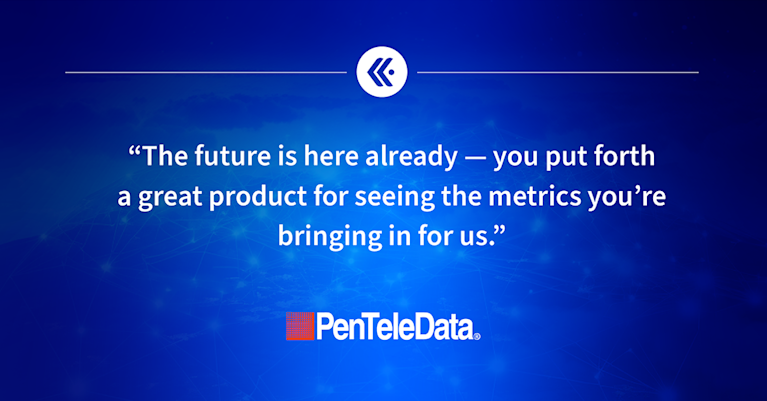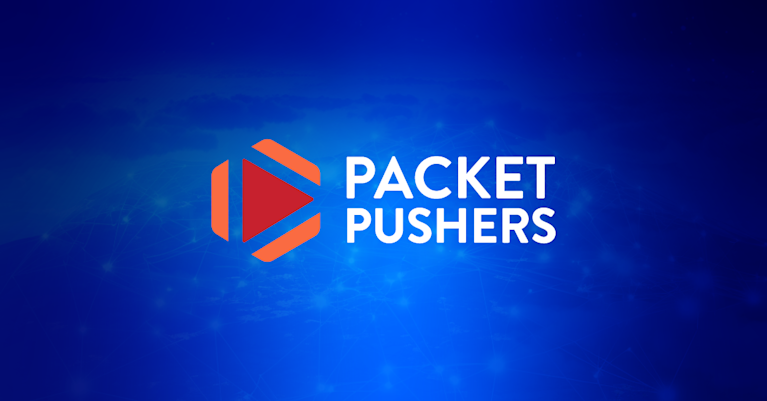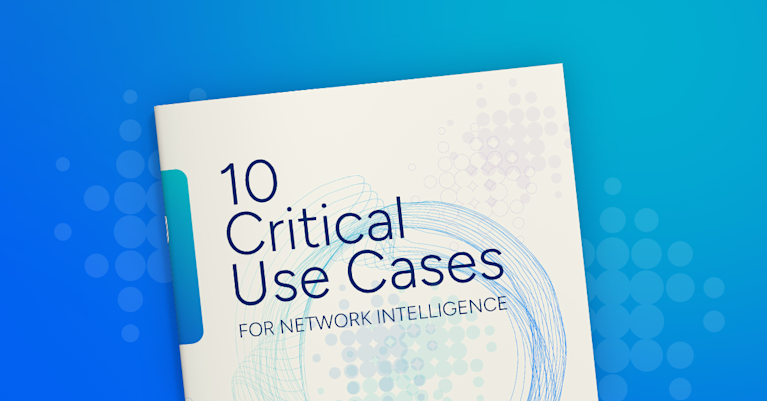Reinventing Network Monitoring and Observability with Kentik AI

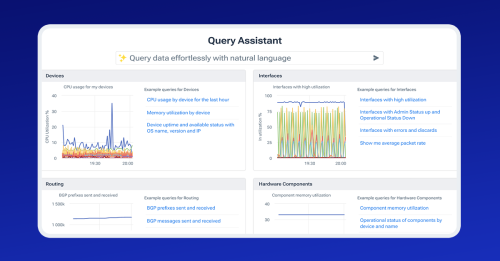
Summary
We’re bringing AI to network monitoring and observability. And adding new products to Kentik, including a modern NMS, to simplify troubleshooting complex networks.
Whether it’s limited visibility into hybrid cloud, challenges with diverse telemetry, failure to scale, or an inability to support a host of network attributes that have become table stakes, one thing is clear: Legacy network monitoring tools are not built for modern networks.
That’s why we are expanding our network observability platform and launching Kentik NMS, the first AI-assisted modern network monitoring system. We’re bringing AI to network monitoring via natural language query for the network, as well as rolling out AI-assisted troubleshooting across the Kentik platform (aptly named Kentik AI).
We built Kentik AI and Kentik NMS for everyone, enabling both technical and non-technical teams to answer any question about their network, improve performance, and reduce costs. Our goal is to make everyone a superstar network engineer.
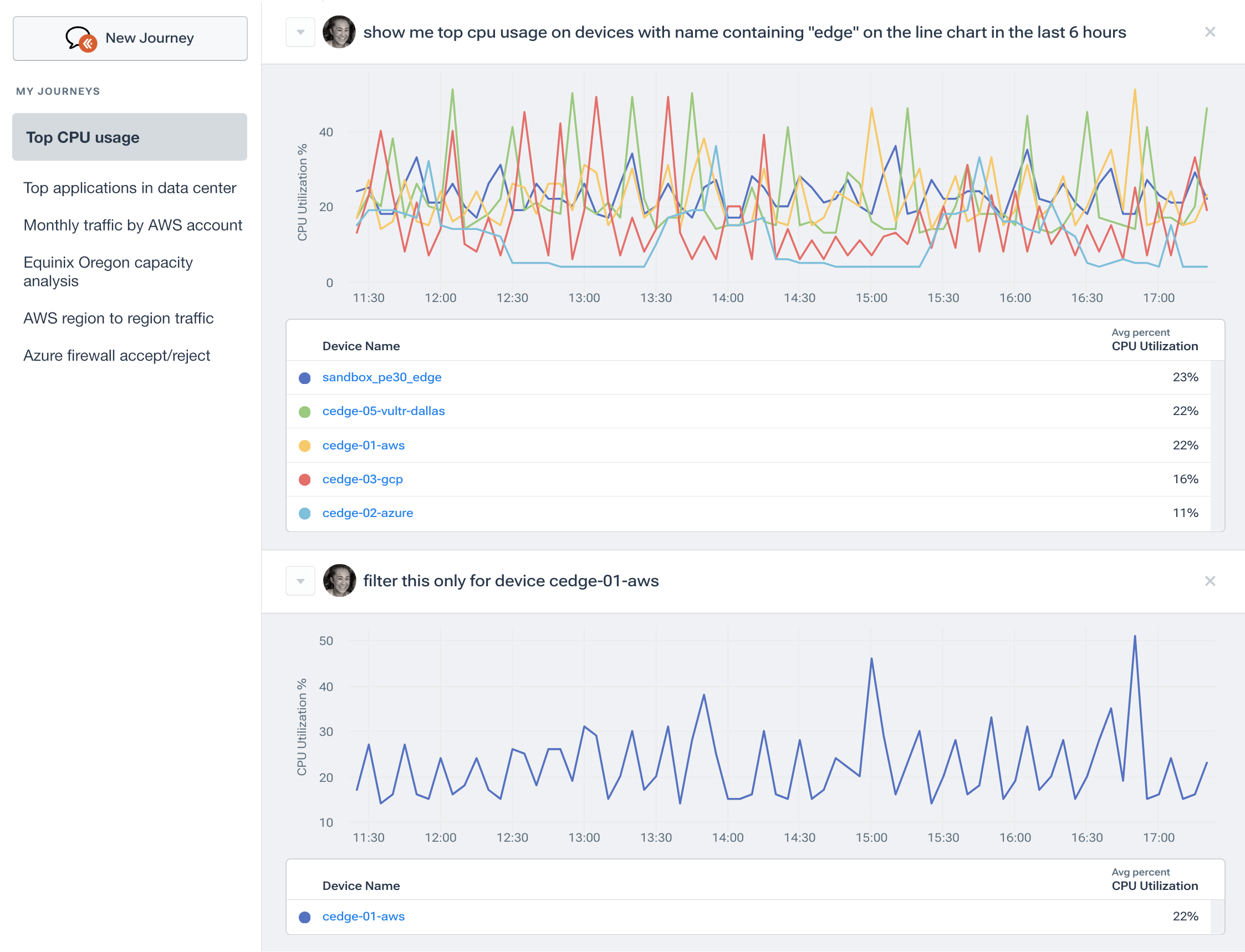
Where legacy network monitoring tools fall short
The conventional view has been that NMS (or NPM as it’s sometimes called) is a solved problem. Yet, our conversations with customers painted a different picture. They expressed a need for something more approachable for stakeholders dependent on the network — which includes not only network teams, but also SREs, security, cloud engineers, application teams, and more.
And we heard their frustrations: slow polling, siloed data, limited correlations and insights, lack of extensibility, manual upkeep, no support for new approaches to telemetry (e.g., streaming telemetry, OpenTelemetry), and for some, months or years between meaningful updates to their legacy tooling.
�“We are switching to Kentik NMS to support our many network devices. The nice, simple dashboard provides all the NMS metrics we need for troubleshooting. Kentik NMS’ extensibility makes it easy to integrate to our internal tools through APIs.”
– Yang Gao, Voice, Data, and Network Security Team Lead
AI network monitoring: What a modern NMS looks like
Kentik NMS is the first AI-assisted network monitoring system. It unifies flow, VPC Flow, eBPF, synthetic, SNMP, and other telemetry from Kentik’s network observability platform with real-time, custom, and streaming device metrics.
When paired with a single view into the entire network — data centers, AWS, Azure, GCP, OCI, K8s, the internet, and beyond — Kentik becomes the network source of truth for any team.
Kentik NMS enables enterprises and service providers to:
- Decrease total cost of monitoring: Put a stop to spending on self-hosting, unload infrastructure costs (physical/virtual), and reduce engineering cycles required to maintain legacy platforms.
- Improve network performance: Automatically identify inefficiencies, underutilized resources, and overprovisioning. Cut through troubleshooting guesswork, and resolve issues faster via AI-assisted investigations.
- Democratize network insights: Enable any team to understand network metrics, interface stats, and the effects of network configurations — and make it easy with AI-assisted investigations. Now, everyone (not just network experts) can see, learn from, and act on insights.
Is it time to migrate to a modern network monitoring system?
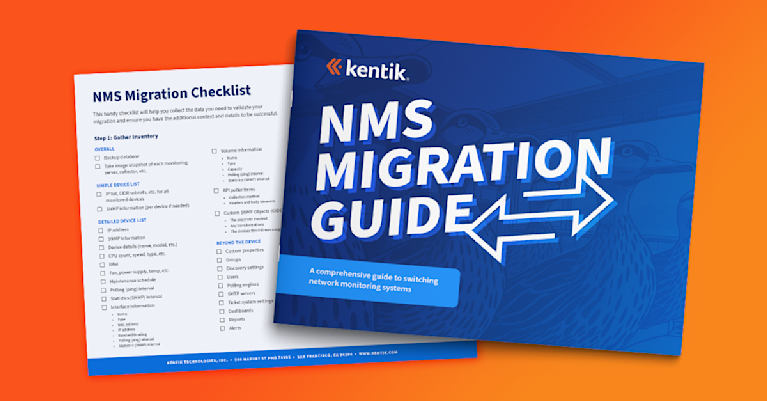
Simplify investigations with Kentik AI
The networks that underpin our digital world need to be available and performant at all times. Yet with the advent of cloud, hybrid architectures, and microservices, these networks have become tremendously complex and difficult to troubleshoot.
Kentik AI is built to accelerate and simplify investigating these complex networks.
Kentik Query Assistant allows customers to use their preferred language to ask questions about their network. Traditionally, observability platforms like Kentik have provided query languages to give users a way to analyze the massive data sets we collect and store about a network. But these query languages, while powerful, have a learning curve. Kentik Query Assistant allows customers to harness the power of their data without having to understand all its idiosyncrasies or how to query it properly. This is a significant benefit for new and expert users alike.
Kentik Journeys takes this concept a step further by providing an AI-assisted conversational user experience purpose-built for the process of troubleshooting and network analysis.
When troubleshooting, engineers typically ask a question, analyze the answer, then ask a new, and hopefully better-informed question. Sometimes this process is simple. Often it is not. This process is repeated until the user comes up with the root cause and then applies a fix leading to resolution.
Journeys provide a dedicated space to perform this iterative process, saving questions and answers as the user performs their troubleshooting journey.
The real power of Journeys is its network context. Meaning it understands the customer’s network. The devices involved, the VPCs and transit gateways running in the cloud, the apps consuming bandwidth, etc. Anyone can converse with Kentik Journeys about their specific network, within a user experience that is purpose built for the journey of troubleshooting, hence making it much faster and more efficient.
See Kentik NMS in action
There are a few ways you can get started with Kentik NMS.
- Sign up for a Kentik trial.
- Request a demo, and someone on our team will reach out to confirm a time.
- Log in to your Kentik account (if you are a customer).
Interested in Kentik AI?
By starting a Kentik trial, you will automatically have access to Kentik Query Assistant, and be able to ask questions about your network in any natural language.
If you’d like to explore Kentik Journeys, our interactive AI troubleshooting, you can request access to the preview here.
